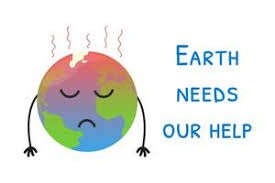~ Sr. Susan Smith for EarthBeat
NEW ZEALAND – When most 19th century apostolic congregations of Catholic sisters were founded, responding to and being directed by bishops was the name of the game. But after the Second Vatican Council that mindset began to change as other criteria such as “reading the signs of the times” became important in discerning new missionary imperatives. Today, Catholic sisters all over the world are prioritizing care for creation as integral to their work.
In the years immediately following Vatican II, conciliar documents, Pope Paul VI’s Populorum Progressio and the bishops’ 1971 synod on justice in the world generated an enthusiastic response from many sisters to step up and respond to the cry of the poor, and not long afterward to the cry of the earth, too.
From the 1970s onward, Catholic sisters were influenced not only by bishops’ environmental statements and scientific publications about environmental degradation, but also by the works of theologians such as Jesuit Fr. Pierre Teilhard de Chardin, Columban Fr. Sean McDonagh and more recent eco-feminist publications such as St. Joseph Sr. Elizabeth Johnson’s Women, Earth and Creator Spirit and Ask the Beasts: Darwin and the God of Love and the publications of Franciscan Sr. Ilia Delio and more.
 Such eco-feminist publications encourage movement beyond earlier hierarchical, dualistic theologies that position humans at the apex of creation with all other creatures deemed subordinate. A pyramidal understanding of creation has meant a real pecking order in the life of planet Earth – the higher up the pyramid one is positioned, the more they can dominate and exploit those relegated to lower positions.
Such eco-feminist publications encourage movement beyond earlier hierarchical, dualistic theologies that position humans at the apex of creation with all other creatures deemed subordinate. A pyramidal understanding of creation has meant a real pecking order in the life of planet Earth – the higher up the pyramid one is positioned, the more they can dominate and exploit those relegated to lower positions.
Long aware of the damage patriarchal and hierarchical ideologies cause, Catholic sisters understand that theologies grounded in those ideologies should be replaced by theologies that encourage mutuality, inclusivity and interdependence. We know that we need Mother Earth more than she needs us.
Growing numbers of sisters, along with millions of others, are aware of what is happening in our world today. Sisters who are directly involved in ministries with the economically and politically disenfranchised poor can easily see how environmental degradation more severely impacts oppressed communities. Climate change means more droughts, more cyclones, more forest fires, more exploitation of natural resources leading to deforestation, more invasions of land of indigenous people. Not only are Catholic sisters focusing on people living in poverty: they also are focusing on an impoverished Earth.
